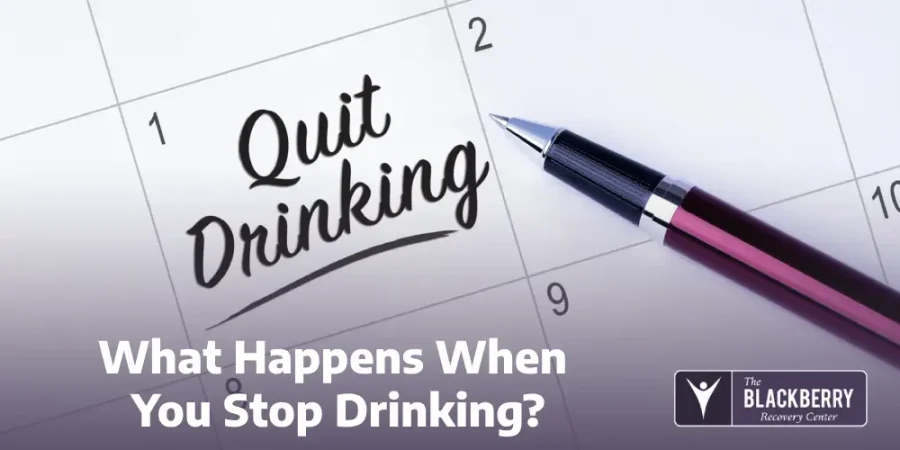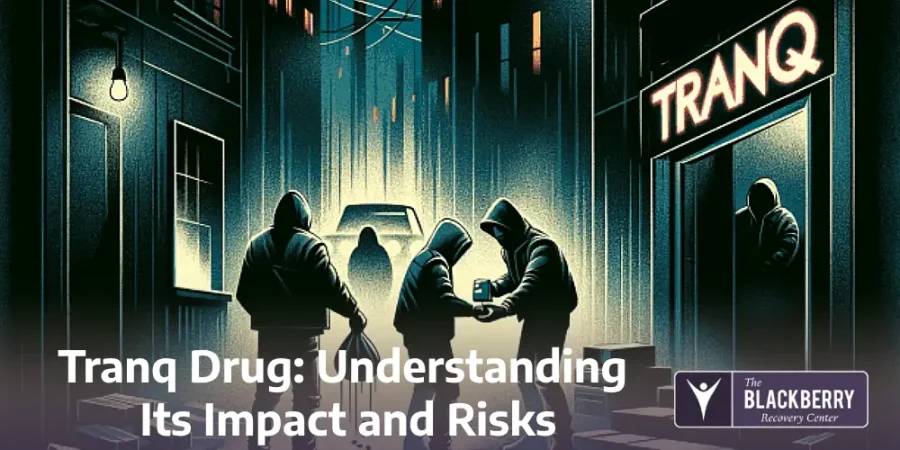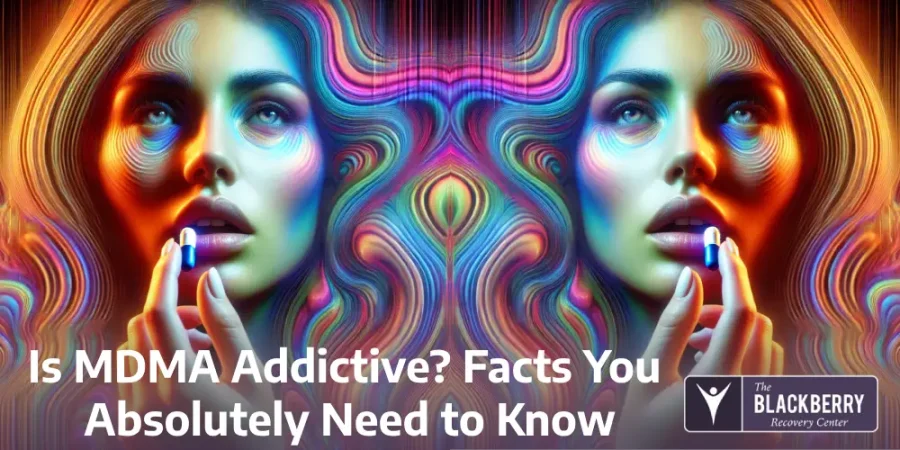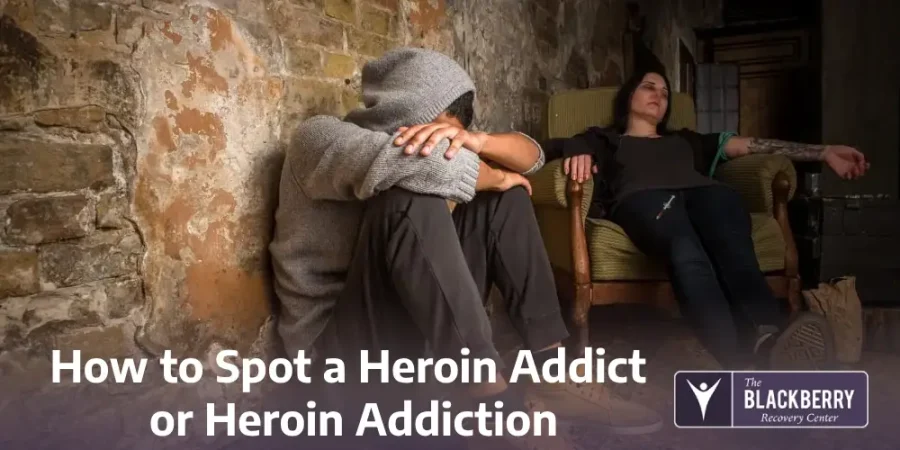As any addiction expert will tell you, there are profound physical, emotional, and psychological effects of alcohol. With long-term use, the effects of alcohol on the brain can change the amount of neurotransmitters in your brain, thus changing your moods and thought processes. If you’re considering alcohol addiction treatment, you might rightly wonder, what happens when you stop drinking?
If you want to know about the various physical and mental effects of quitting alcohol, keep reading this guide. Let’s start with the beginning and discuss what you can expect after one week with no alcohol.
Quitting Alcohol Timeline
One Week Without Alcohol

Alcohol Withdrawal Symptoms
The unfortunate fact is that after long-term alcohol abuse, alcohol and the body become deeply connected. At this stage, your body has been used to frequent drinking for a period of months or years, and stopping can lead to some severe side effects. These alcohol withdrawal symptoms may include:
- Nausea and vomiting
- Headaches
- Chills or hot flashes
- Anxiety
- Insomnia
- Seizures
Because of how alcohol affects the brain, you may also present with two serious issues: delirium tremens and Wernicke-Korsakoff syndrome, also known as wet brain. With delirium tremens, or DTs, you may experience hallucinations and confusion as your brain struggles to function without alcohol. And with wet brain, you may experience an altered mental state or difficulty communicating.
As you can see, both due to the effects of alcohol on the body and the effects of alcohol on the brain, the early stages of recovery are difficult, to say the least. But still, people quit alcohol every single day. So what’s the secret?
Well, they don’t do it alone.
When you enroll in a medical alcohol detox program, you guarantee professional medical help for the physical, emotional, and mental effects of alcohol. And that has two big benefits: First, it can save your life by treating life-threatening effects of alcohol like seizures or wet brain. Second, it vastly improves your chances of achieving long-term sobriety. At home alone, it’s easy to drink to try and make withdrawal symptoms go away. At a Florida detox center, you will be kept as comfortable as possible and you can focus on your recovery without the fear of immediate relapse.
If you’re ready to take this crucial first step, call our admissions specialists at (813) 908-4199 or ask your questions online. What happens when you stop drinking is difficult to handle in some cases, but the beginning is often the hardest part of recovery. When you ask for help, you’re working toward a future that is happy, healthy, and sober.
Two to Four Weeks Without Alcohol
The good news is that at this stage, the worst is behind you. You’ve physically detoxed, and your body has started to learn to live without alcohol again. The bad news is that alcohol and mental health are still deeply connected, and you may experience lingering mental effects of alcohol.
For many people, this vulnerable period is marked by feelings of anxiety and/or depression. You may notice that you lack energy or display sudden mood swings, and while this is an uncomfortable period, it’s important to remember that your body and mind are healing from the effects of alcohol.
What happens when you stop drinking is complicated, but on the whole, even the seemingly negative effects are your body’s way of trying to right itself. Yes, you may feel sad or lethargic, but your body is slowly learning how to produce normal levels of “happiness hormones” like serotonin and dopamine. Continued support is important in this early stage of recovery, which is why many individuals choose to transition from medical detox to an inpatient alcohol addiction program.
When you enroll in 24/7 care, you can expect treatment options that address both the physical and psychological effects of alcohol abuse. This can include group therapy to develop healthier coping mechanisms, 12-step programming to gain support from other people in recovery, recreational therapy to develop new life skills, and other treatments that provide comprehensive wellness. The emotional effects of alcohol can be as serious as the physical, so don’t be afraid to get help and start your recovery on the right foot.
Benefits of No Alcohol for One Month
After a month without alcohol, your body should be making good progress in healing itself. You’ll likely notice an improvement in your mental health, particularly if quitting alcohol led to anxiety or depression symptoms for you. Moreover, you’ll start to enjoy exciting benefits of sobriety that can improve your physical health:
- Decrease in your liver fat by as much as 20%
- Lessening levels of bad cholesterol
- Improved sleep quality
- Better ability to concentrate
- Lower blood glucose levels
As you can see, one month without alcohol can do a world of good for you. But it’s important to remember that the temptation to drink will not go away this early, if it ever does. You will still almost certainly feel a desire to drink, and that can unfortunately start the whole recovery process over again.
For this reason, many people continue treatment even after they’ve returned home, usually in the form of a partial hospitalization program (PHP). This outpatient addiction treatment option allows you to live at home and transition back to daily life while still receiving crucial recovery support. If your goal is long-term sobriety, you should consider this as an option, even when life without alcohol seems to get better.
Benefits of No Alcohol for Three Months and Longer
Congratulations, the worst is officially behind you at this stage. While recovery is a lifelong process that never ends, your physical addiction should subside considerably. You may notice bouts of post-acute withdrawal syndrome (emotional signs of alcohol withdrawal that include anxiety, bouts of anger, and depression) at various points over your first year of sobriety, but these should be infrequent and go away in time. Continuing to attend 12-step meetings and use sobriety apps can go a long way in keeping you sober during these tough times.
On the whole, though, you should continue to notice improvements in mood and your physical health. Alcohol takes a toll on the body, and the longer you go without drinking, the better you’ll feel physically and mentally.
How Long for Hormones to Balance After Quitting Alcohol?
One question that often arises when discussing recovery is, “How long does it take for hormones to balance after quitting alcohol?” Hormonal imbalance is a common issue following long-term alcohol use, affecting not just your mood but also various bodily functions.
The timeline for hormonal balance can vary significantly from person to person. Factors such as the length and severity of alcohol abuse, overall health, and the presence of co-occurring medical conditions can all play a role. However, generally speaking, it can take anywhere from a few weeks to several months for hormones like cortisol, serotonin, and dopamine to stabilize.
It’s essential to note that medical supervision is often required for this process. Hormonal imbalances can lead to a range of symptoms, including sleep disturbances, mood swings, and even more severe mental health issues like anxiety or depression. Therefore, consulting with healthcare providers and potentially undergoing hormone level tests can be beneficial for a more personalized recovery plan.
If you’re concerned about hormonal imbalance during your recovery, consider enrolling in a comprehensive treatment program that addresses both the physical and psychological aspects of alcohol abuse. Such a program can provide you with the medical support you need to better understand and manage your hormonal levels as you work toward long-term sobriety.
Are you ready to get started on your own recovery journey? It’s never easy, but when you stick with it, it’s always rewarding. Reach out for help at (813) 908-4199 or through our confidential contact form. Now that you know what happens when you stop drinking, you can make an informed choice and guide your life into a better, happier place.
After three months with no alcohol, you should be feeling better both physically and emotionally. You may still feel tempted to drink, but your body and mind will be well on their way to recovery. You may occasionally notice flare-ups of the mental effects of quitting alcohol, such as anxiety or depression, but these should be temporary and less frequent as you continue on without alcohol. Remember, recovery takes time, but the longer you go without alcohol, the healthier you’ll be physically, mentally, and emotionally.
During your first month of recovery, you may start to notice the emotional effects of quitting alcohol. These include anxiety, depression, and bouts of anger. These are all completely normal, and they’re your brain’s way of operating as it begins to heal itself from damage done by alcohol. However, during this period you may also start to develop important benefits of quitting alcohol, such as healthier liver function and longer, more restful sleep.
Your first week without alcohol is generally considered the worst part of recovery. You will likely get sick due to alcohol withdrawal symptoms, with the following being most common:
- Nausea and vomiting
- Headaches
- Chills or hot flashes
- Anxiety
- Insomnia
- Seizures
Because this is such a vulnerable time, and your risk of relapse is high, most people enroll in an alcohol detox program at this stage of recovery. This will keep you safe and sober and empower you to have a constructive, successful recovery.
The initial stages of alcohol withdrawal typically last up to seven days, but that doesn’t mean you will be “back to normal” after that time. In the early days of recovery, your body will go through stress as it adjusts to functioning without alcohol. This adjustment period will continue for months to come and get easier over time, but the initial stages of withdrawal should be finished within one to two weeks of your last drink.
While the onset of alcohol withdrawal symptoms vary by person, they can start as soon as six hours after your last drink. In other cases, they may take up to 72 hours after your last drink. This will ultimately depend on how much you’re used to drinking, how long you’ve been drinking heavily, your medical history, and genetic factors.
Alcohol can cause depression, and in some cases, depression can cause alcoholism. When you are depressed, you may feel tempted to self-medicate with alcohol. This will make problems easier to deal with in the short term, but in the long term, it can lead to social isolation, financial troubles, and an overall increase in depression symptoms. Similarly, drinking too much can worsen your situation, which can lead to depression, particularly because alcohol is a depressant.
Moreover, in the early stages of recovery, not drinking alcohol can lead to depression symptoms as your brain starts to heal. This is normal, and it often goes away with continued sobriety.
Video
What Happens To Your Body When You Stop Drinking Alcohol
Drinking alcohol is one of the most popular things to do across the globe. Some people spend their entire weekends sitting at the bar, but consuming alcohol on a daily or weekly basis can have extremely negative effects on the body. So what happens when you quit drinking? Find out in today’s new video that looks at the changes your body goes through when you stop drinking.
Podcast
Quit Drinking Alcohol Timeline Days 0 to 365. Here’s Exactly What To Expect
In today’s episode I will be breaking down exactly what happens to your body during each stage of quitting drinking alcohol from day 0 to day 365. If you’re thinking about going sober from alcohol then this podcast is a must listen!
FAQ
- What are the immediate effects of quitting alcohol?
Within the first 24 hours, withdrawal symptoms like anxiety, sweating, and irritability may occur. - How does the body recover in the first week of sobriety?
Sleep and hydration improve, and cravings may lessen as the body adjusts. - What changes happen after one month of sobriety?
Liver function begins to repair, and mental clarity improves. - Can quitting alcohol reverse long-term damage?
Some organ damage, like liver issues, can improve with time and care. - How does long-term sobriety benefit overall health?
It reduces the risk of chronic diseases, improves mental health, and enhances energy levels.




